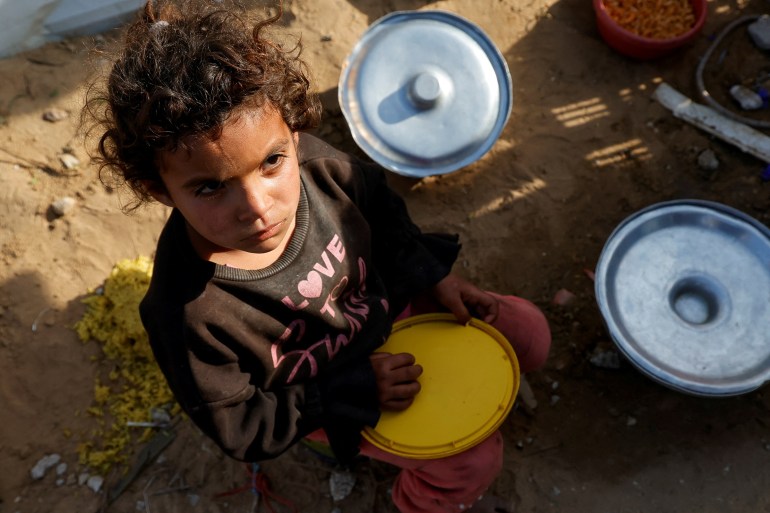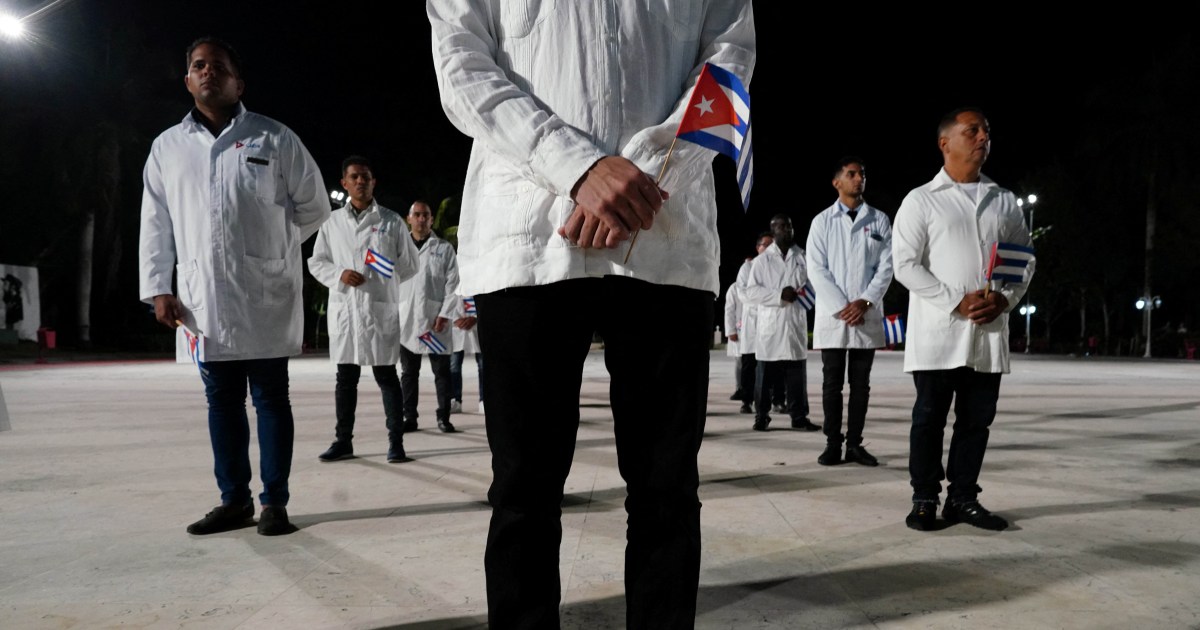According to accusations of forced labor, Cuban leaders have refuted the government’s threat to halt travel for those who work in or support Cuban medical facilities, citing claims that these missions “enrich the Cuban regime”.
Healthcare systems in the Caribbean are dependent on Cuban medical missions, which provide doctors, nurses, and other medical personnel with facilities.
What would this threat mean for Caribbean healthcare, then, and how have Caribbean countries responded to it?
Why is Cuba’s medical program receiving criticism from the US government?
The administration of US President Donald Trump has not previously targeted Cuban medical missions. His administration imposed visa restrictions on Cuba’s global medical program during his first term as US president, which lasted from 2017 to 2021. His government claimed that these missions were “human trafficking” because Cuban doctors are allegedly underpaid, according to the government.
US Secretary of State Marco Rubio has made this year’s announcements to impose restrictions on visas on Cuban government officials and anyone else that the US consider to be “complicit” in Cuba’s foreign medical programs. The State Department stated that the restrictions would also apply to “current and former officials” and “immediate family of such individuals.”
The Cuban medical program, according to Rubio, is a form of “forced labor,” and the government has warned that Caribbean countries that participate in these programs may encounter visa restrictions as well as possible trade repercussions.
No specific proof has been provided to back up these assertions, though.
The US claims that Cuba’s government mistreats its medical professionals by keeping a large portion of their wages and restricting their freedoms. Many Cuban doctors claim to be willing to take part, despite some of them defecting and criticizing the program’s conditions.
This issue is “complex” and should focus on the doctors themselves, according to Tamarys Bahamonde, an economist at the US-based Center for Latin American and Latino Studies.
We are aware that Cuban doctors do not negotiate their own contracts or working conditions, she said.
“Cuba retains a significant portion of their salaries,” according to doctors’ testimony supporting Cuba’s restrictions on travel, the confiscation of passports by host countries, and the limitations on bringing their families along.
Bahamonde also stressed the crucial role that Cuban medical professionals play, particularly when it comes to providing healthcare to underserved populations.
“I first saw firsthand how appreciative many nations are of Cuban doctors and the advantages they offer to remote areas where there was little access to medical care,” she said while working for a foreign embassy there.
Can Trump’s administration carry out this legally?
Through the State Department, Trump legally has broad control over visa policies. By citing national security or concerns about foreign policy, the US government can impose restrictions without the consent of Congress.
The US can intervene through diplomatic or legal means, but Bahamonde pointed out that the Trump administration is also in charge of Cuban medical missions.
The Biden administration’s proposed visa restriction is actually an expansion of a policy that was started. President Biden authorized sanctions against officials from third countries that provided Cuba’s medical services in a spending bill signed in 2024, Bahamonde claimed.
His administration also claimed that Cuba had benefited from its medical professionals that year.
According to her, the opposition to Cuban medical missions is “bipartisan,” citing a Republican Congressman Mark Green resolution from 2024 that forbids visa revocations for nations hiring Cuban doctors.
“Across party lines, the sentiment regarding Cuban medical missions is fairly consistent.” I don’t anticipate much resistance from President Trump, she said, regardless of whether he has the executive authority to impose these visa restrictions.
According to her, this suggests that Caribbean nations will likely continue to be under diplomatic pressure despite who is in charge of their reliance on Cuban medical professionals.
What has the leadership of the Caribbean done?
Some Caribbean leaders have declared that they will not be able to obtain US visas if keeping Cuban medical missions is required.
Mia Mottley, the prime minister of Barbados, addressed parliament this week and slammed the US’s position as “unfair and unjustified.”
Without Cuban nurses and doctors, she said, “We couldn’t get through the pandemic.”
Keith Rowley, the prime minister of Trinidad and Tobago, warned that US influence on decisions regarding healthcare in the Caribbean was unacceptable.
According to Rowley, “We have been called human traffickers right now because we employ highly skilled professionals who pay top dollar,” adding that he was prepared to lose his US visa.
Ralph Gonsalves, the prime minister of Saint Vincent and the Grenadines, also made a point about how directly Cuban doctors influence patient care.
We might not be able to run the service if the Cubans aren’t, he said. “I would rather lose my visa than have 60 working and poor people die,” I said.
And last week, Jamaica’s foreign minister Kamina Johnson Smith stated to reporters that Cuba’s medical personnel are crucial.
She said that our healthcare system is in need of their presence. The nation currently employs 400 Cuban doctors, nurses, and medical technicians.
Fred Mitchell, the country’s foreign minister, praised the Cuban program in a post on X, claiming that his country “follows all international best practices in the recruitment of labor.”
15 foreign ministers from the Caribbean Community (CARICOM), including US special envoy for Latin America, met with US special envoy Mauricio Claver-Carone in Washington, DC, on Tuesday to discuss their opposition and demand clarity on US policy, according to Hugh Todd, the country’s foreign minister.
Although the US is a strategic partner of CARICOM, he said that heads of state must be in charge of this crucial issue.
What happens if Cuban medical missions are cut, and why are they necessary for Caribbean healthcare?
More than 24, 000 doctors are employed in 56 countries around the world, with the goals of improving healthcare in the Caribbean, particularly in developing nations with severe economic crises and limited access to healthcare.
According to Bahamonde, “the impact on Caribbean nations will depend on how important Cuban doctors are to their healthcare systems and how difficult it would be to replace them without having a significant impact on the communities in which they are dependent.”
The immediate effects could be devastating for many Caribbean nations. Training local doctors takes years, and trained professionals frequently move abroad, leaving a persistent shortage.
Cuba fills this need by sending countless medical professionals to locals at significantly lower prices, according to Bahamonde. Primary care, emergency response teams, and specialists in fields that are frequently underrepresented in Caribbean hospitals are provided by these missions.
They have also played a significant role in preventing regional disasters like hurricanes, earthquakes, and other public health emergencies. In addition to helping Caribbean countries fight the COVID-19 pandemic, Cuban doctors were instrumental in preventing the cholera outbreak in Haiti following a devastating earthquake in 2010.
Which other nations rely on Cuban medical missions?
Cuba has medical missions all over the world in addition to sending doctors to the Caribbean. Among the most notable examples are:
- With thousands of patients in community clinics, Venezuela is one of the country’s top recipients of Cuban doctors.
- Up until 2018, Cuba recalled 8, 000 doctors as a result of a diplomatic dispute. Brazil had a significant medical program there.
- During the COVID-19 pandemic, Cuban doctors were sent to Italy to assist overwhelmed hospitals in some of its hardest-hit areas.
- In rural areas where there are doctor shortages, South Africa hosts Cuban medical professionals.









